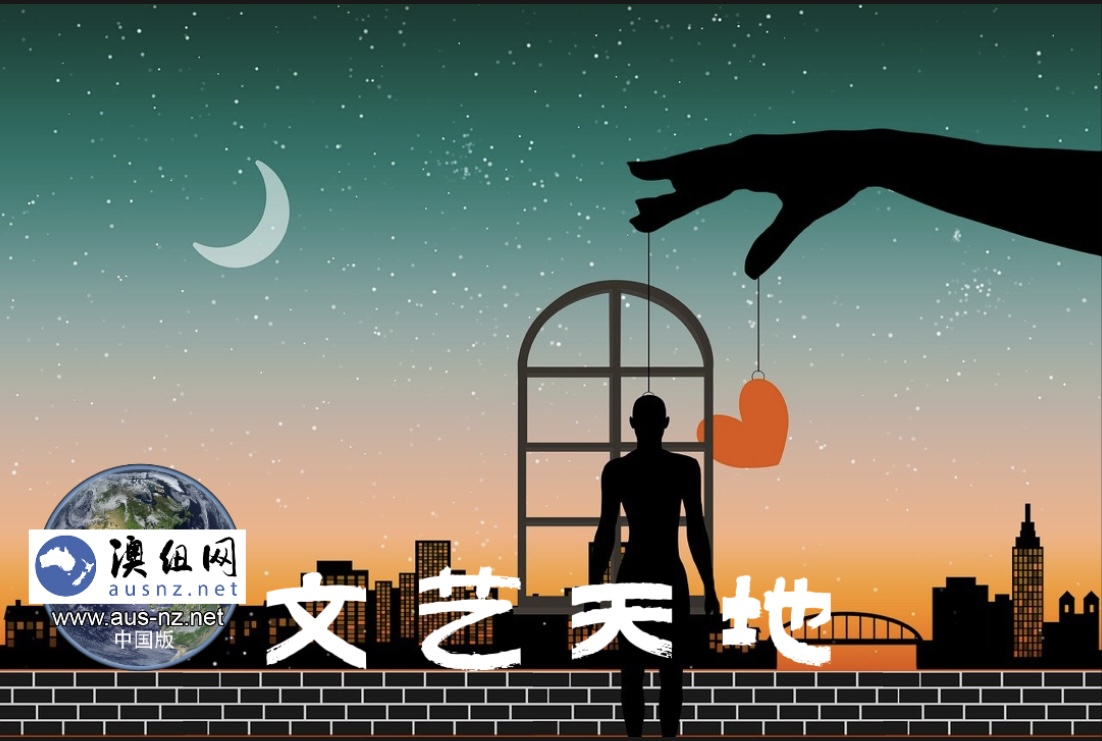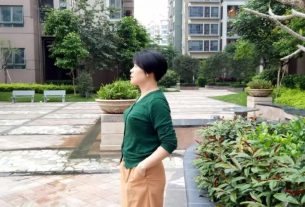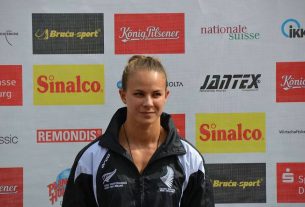Dialogue Between Maria Cristina And Cao Shui:Going Out Of A Single Civilization, We Must Think Globally
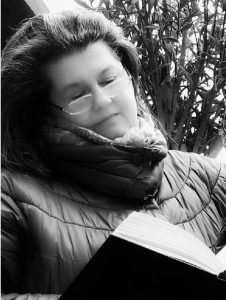
Interviewer:Cao Shui
Interviewee: Maria Cristina
广告 | Advertisement
在澳纽网做广告 | Advertise with us
1-Hi Maria Cristina, last year you interviewed me, now I’m interviewing you. Thanks for your time. In Italy you are a well-known blogger, author of numerous books. You started your career as an author writing poetry and fairy tales. What made you choose to write? What impact did childhood have on your writing?
Hello, I was pleased to meet you through my Herbal Tea Interview, it was a pleasant chat,
(https://mariacristinabuoso.blogspot.com/2022/09/una-tisana-con-cao-shui.html ),
just know that the second Herbal Tea Interview is also waiting for you, when you feel like making it. Talking about myself is never easy but I try hoping I’m not too long-winded as I usually am. Thank you for the opportunity you are giving me, I hope to make myself known in your Country as an author through this interview.
Writing for me was almost natural. I’ve always had a lot of imagination since I was a child and at that time it was fueled by my newly discovered passion for reading. I started with comics because I found them in my aunt’s newsstand and I immersed myself in these colorful stories full of figures, while books opened up worlds for me to immerse myself in. The next step was to try to put on paper what my fervent mind imagined, and being little the first things I wrote were fairy tales.
2-I noticed you’ve switched to detective stories or thrillers. Why did you decide to specialize in the latter literary genre?
I went from fairy tales to poems to short stories to novels, I tried writing scripts and such, and then one day the first ideas for my thrillers came along. Having always been an avid reader of detective stories and thrillers and knowing that it is not easy to write them, I have always refrained from doing so out of respect for these genres… until a few years ago when, at a painting exhibition, I got the idea for Vernissage and immediately after that came the one for The Accident and The Bard. At the same time, another idea came for another very special thriller that I’m not talking about because it’s still an embryo between my head and paper. I didn’t specialize in these genres but they are the last ones I’ve dealt with and, as long as the ideas are good and the readers appreciate them, I will continue to write them because I’m getting attached to my characters too, same thing for detective stories, we call them “yellow stories” because , in 1929, the Arnoldo Mondadori publishing house published a series of detective books that had the cover of this color , for this reason in Italy we often use this term to define this genre of literature. Forgive me for my digression, but I thought it was only fair to explain to your readers why we call them in that way. My publisher
( https://www.placebookpublishing.it/ ) , about three years ago, had the idea of creating this series that recalls the historical one I mentioned to you and the authors who adhere to this initiative choose a city where they set their series, mine is Padua. Sorry for going on long, but I thought it was right to explain why I wrote these genres lately. I anticipate that a fiction book is coming out and one in the pipeline for Christmas, if I can finish it, and perhaps another one for children.
3-In addition to poems and fairy tales, you also write short stories, screenplays, novels, detective stories, thrillers, etc. Do you think the same material can be written in different genres? Is there a relationship between them?
I believe that it is the story itself that chooses the type of narration that is most congenial to it. Example: Souls could only be an intimate and short novel, considering the subject matter. Sometimes it’s me who thinks about a story and the genre for that story. For example, now I have to decide what I will write in the third thriller, and I’m a bit undecided between 2 or 3 subjects. I can’t decide, but maybe, by letting these ideas settle, one will emerge more than the others.
4-In terms of literary classification, detective novels in China belong to the genre classified as “mass literature” or popular literature rather than classical literature. I wonder if there is such a classification in Italy too? How do you see these two differences?
It’s not a simple answer, let me explain… detective stories, like other genres, were born as popular literature, in fact many were also written in episodes and often helped the author to support himself economically. Today those books have become classics of that genre of writing, the first names that come to mind are Agatha Christie and AC Doyle. But if we were to divide detective stories and thrillers today, we would have a whole series of sub-genres that have also influenced cinema and TV. I’ll give you another example again with Doyle: I think his S. Holmes is among the most used characters in literature in both fields. I won’t go further so as not to bore you, but I believe that labeling this kind of writing simply as “mass literature” is disprectful, nowadays it is just a lazy way of not wanting to understand its importance in today’s society. It’s my opinion but I’d like to know what you think. And to go back to your original question, I think there is a tendency to think of the Classics as one step above other genres.
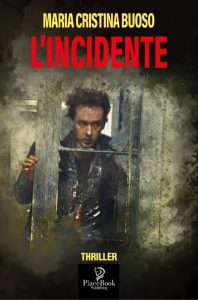
5-Among your detective novels I notice some interesting titles: Souls, Vernissage, The accident, Murder in the building Magnolia and The mystery of the six tiramisu. Italy is famous, among other things, for its delicious desserts, such as tiramisu. My question is: when you write these stories do you use fantasy and imagination more or are you inspired by real events?
Souls is a fiction book that deals with a sensitive subject in a different way. Briefly he is a man who, despite being satisfied at work and with a beautiful family, feels an inner malaise that does not leave him and will discover by chance that he is in the wrong body. He will make a choice and inform the family and here we will have his voice and also that of his wife and daughter who will express their thoughts. Vernissage and The accident are thrillers set in Treviso, while Murder in the Building Magnolia and The mystery of the six tiramisu are part of the “yellow series” set in Padua. In Italy, all cuisine is good, not just desserts, and tiramisu is one of the best-known desserts in the world, but let’s get back to me. Regardless of what I write, the idea always comes to me from something real, whether I have read, seen, heard or have been told or suggested. Afterwards it will be my imagination that creates the story and fleshes out the characters, hoping that I have done a good job and not have disappointed the readers.
6-You live in Rovigo, where you have set your stories in several books. Do you want to tell us about this city? How has the culture of this city influenced your writing?
Mine is a small city in the Veneto region. It seems that the first reliable historical document traces its birth back to April 24, 838. In the past it was often disputed by local powers for its strategic position … if you are interested I am describing my city and its surroundings in the blog of Maria Teresa De Donato
( http://www.dedoholistic.com/ ), subsequently I report these articles both in my blog(https://mariacristinabuoso.blogspot.com/) and in that of https://alessandria.today/ , I’ve been collaborating with it since this year. I believe that everything that surrounds us and that we feed on, such as food, reading, local history, paintings, etc., serves to make us grow and to lay the bricks that allow us to build our personality and give us the tools to become adults and to write or do other things. I can’t tell you how much of this goes into the books but I’m sure there will always be something. Until now, the books have mostly been set in my region, which is Veneto; Padua, Treviso, the Dolomites but not yet in Rovigo and other books in other Italian cities.
广告 | Advertisement
在澳纽网做广告 | Advertise with us
7-I feel there is a feminist tendency in your novels. How do you see feminism? How do you express your opinions through your novels?The term “feminism” is not correct, usually men with this word tend to want to denigrate and humiliate the growth path that the female gender has made over the years to obtain those freedoms or recognitions that they should have had on a par with the male gender, like the right to vote or equal pay at work or be respected without being harassed. These are the first things that come to my mind. In books I tend to write “feminine” which does not mean “feminism”, I specify because they are two terms with different meanings. It came naturally to me to write like this, the point of view of the woman is often different from the male one, and I think it is important to see the same thing but with a different eye. At first I didn’t even realize I was doing it, it came naturally to me. I believe that giving space to female characters as protagonists on a par with their male colleagues in books has been a natural path that other authors are increasingly following, and not just in literature. In this way they are the first person to talk about themselves and express their opinion directly and no longer filtered through the voice of men.
8-In your blog you also collaborate with Fiori Picco and Fiori d’Asia Editrice which, together with the China Writers Association, founded the Chinese Literature Readers’ Club, of which you are a member and promote Chinese authors. Do you want to tell us about this collaboration? How do you promote Chinese literature and culture?
This collaboration was born by chance, I did one of my Herbal Tea interviews with Fiori years ago (https://mcbuoso.wordpress.com/2021/06/08/una-tisana-con-fiori-picco/)
and I was immediately intrigued by her career and her knowledge, so I asked her if she wanted to collaborate on my blog, she accepted and based on her commitments, usually once a month, she writes an article talking mainly about China. Her pieces are always read with pleasure by readers even after weeks. I also point out the books that she offers me and recently the interviews that I always do with great pleasure have also been added. If there will be other types of collaborations or ideas to deepen this culture in the future, I will be happy, I believe that mutual knowledge helps to build bridges.
9-I see that you also write screenplays. Do you like watching dramas, movies or TV series? What do you think is the difference between Italian and Chinese dramas and films? What do you think of the famous opera “La Turandot”?
I wrote them many years ago, if I had to do it now I would have to learn how to do it again, because I don’t remember anything anymore. I’m an omnivorous person, not only for food but also for reading, movies, music, etc… I like to open my space while having my preferences, it’s logical. I admit that I have some difficulties to understand and deal with some genres, but I think this is normal too, everything evolves and is linked to the time in which we live. Unfortunately, I haven’t seen much Chinese TV and movies, and I don’t know your culture very well, so I can’t compare it with mine. I am sorry. From La Turandot the lyric None shall sleep by Pavarotti is one of my favourites. What can I say… it’s a very beautiful work, I saw it many years ago so I have a vague memory… but I hope to see it again sooner or later.
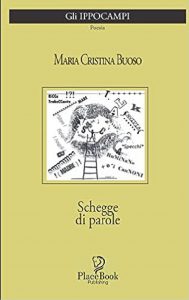
10-In the past you have received several international poetry awards, including an Australian award and many others. What does poetry mean to you? What kind of poetry do you write? Why do you define it as “visual” in Fragments of Words? In China, there is a debate on the topic of modern poetry without rhyme and ancient poetry with rhymes. In Italy, do modern poets use rhymes?
This is one of the poems in my book Fragments of Words. As you can see, it is written in a particular way, that’s why I call it visual.
……SHHH……
……. Eyes that stare
the last straw /
/Slip/
/ towards the Void
of the Soul
…………SHHHHH…………
I believe that everyone should write poetry as they feel it inside, I don’t think I could write in rhyme, it comes natural to me to write in a certain way, perhaps because among my favorite poets there are the hermetic or a type of poetry like that of Alda Merini and Emily Dickinson… These are the first names that come to my mind. I think most poets today prefer to write in free verses because it allows them to express themselves more easily and I don’t think most readers like to read in rhyme, but that’s my opinion.
11-I know you also wrote fairy tales. Italian fairy tales are very famous and almost everyone in China knows “The Adventures of Pinocchio”. I too wrote 18 fairy tales that Fiori Picco will translate in Italy. Can you introduce us to Italian fairy tales ? What do you think is the most important aspect of writing in this genre?
A brief introduction: there are popular fairy tales and fairy tales written by writers. Among the popular ones I could suggest those of the Dolomites (I’m re-reading them right now for something I have to write), but every Italian region has its own handed down over the years. In Italy there are some well-known names for this literary genre, among them Gianni Rodari has always been widely read and, if I remember correctly, he is the only Italian writer to have won the Hans Christian Andersen Prize. Talking briefly about a fantastic world like fairy tales would be reductive, so I will let speak a great Italian author, Italo Calvino, with his “Italian fairy tales” collected and transcribed by Italo Calvino. I think he could answer your question better than me.
12- Nowadays book readers seem to decrease all over the world, they are more turned to visual works, especially in China. How do you think literature will develop in the future? How should writers respond to such a change?
Unfortunately everything evolves because change is in the nature of things, and we often don’t know how to manage it or even interact in the right way because we find ourselves unprepared in this continuous race towards the new. But we don’t have to be afraid of it, we just have to try to use it in a way that is easier for us. This also means looking for a language that adapts to these changes, otherwise we risk speaking two different languages. The problem is that while times were once slower, now they’re super fast and what goes well today may not necessarily go well tomorrow. In my opinion, the important thing is to evolve without losing sight of who we are. Today many people read e-books or listen to audiobooks. Those who love paper books are horrified, but for readers it becomes more and more normal because they carry it around and listen to it or read it in free time. This means having a less difficult but more direct and incisive writing style because they get distracted easily and, if something isn’t immediate, they go further, maybe that’s why they prefer visual works, this is what I think. We must also consider their age and their habit of using mobile phones and what has changed their way of speaking and writing. For us who are “grown up” it is more difficult to understand and adapt to all this because we are still tied to a different form of reading and writing.
13-I see that you are also interested in oriental culture. Do you believe in reincarnation? In the Christian religion, people after death go to heaven or hell. Do you believe in life after death?
I’m a Christian because I was baptized but I’m not a practitioner, and here I prefer to go further because the subject could become a bit complicated to deal with in this interview. I believe that there is “something in the universe” to which each of us gives a different name also from a religious point of view and I believe that each of us has a path to take and things to learn even in different lives. I believe in reincarnation in these terms. In the Catholic religion there are heaven, hell and purgatory. And each of these floors has its own well-defined function. For the first two I think it is evident, while purgatory is that place where a soul must purify itself to reach heaven. I know it’s a very basic explanation but I tried to be as concise as possible.
14-Detective novels and thrillers have a large readership around the world. You like British writer Arthur Conan Doyle, American writer Stephen Edwin King and Japanese writer Keigo Higashino ? How do you rate their works?
SE King: I’ve tried to read him a few times, but I can’t, his books make me sick. He writes in a way that involves the readers and makes them his loyal fans, but his stories make me anxious.
AC Doyle: with his protagonist Holmes is a classic that one cannot fail to know and appreciate.
Keigo Higashino: I admit I don’t know him and I’ll keep it in mind. Do you have any books to recommend to start from?
15-The herbal tea interview you dedicated to me some time ago is particular and in-depth. What does interviewing international Asian authors mean to you? As a Western writer, how do you see China?
That type of interview was born to get to know the person behind the author and, I have to be honest, it gave me a lot of satisfaction and allowed me to meet many incredible people. Interviewing international Asian authors was for me a window that opened into a world I didn’t know and allowed me to take a look to realities I didn’t know about and learn about books that intrigued me. For me, China is a Country I know very little and I hope to know it a little more through you authors, perhaps through personal interviews or through your books. I believe that like me, many people are curious to deepen your reality through a direct approach and not filtered by journalistic articles.
广告
Advertise with us
16- We are all familiar with Western centralism which, moreover, also exists in the East, in China. How do you see the development of Eastern and Western culture? How do you think world civilization will develop?Hard question. Honestly, I see the World Civilizations (I use the plural because it is not just one but many and different) in a bad way. If they don’t understand that they are following a road that is leading them towards “nothing”, towards no return… Whether they are Western or Eastern, nothing changes because today we are all connected and the action of one is at the expense of another Country. An obvious example: the air circulates, so if a country looks for an ecological method and another neighbor doesn’t… it is clear what the result will be. We have to stop thinking selfishly, in the singular, but we have to think altruistically, globally. Mine does not want to be an utopian speech. If we look around, I think it is obvious for everyone to see that we have reached a critic global level that endangers all countries. For this reason I think it is obvious that, only by putting us all together without distinction of great and small, we can hope to arrive at a solution that includes everyone without difference. I don’t want to bore you further with thoughts that we will all have done at least once after hearing journalistic reports.
Thank you for this long chat and I hope we can talk again.
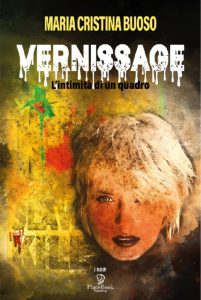
Books of Maria Cristina
Anime – is a fiction book that deals with a particular topic from a different point of view. Three points of view in front of a difficult choice to make. THE protagonist who must make the choice, the wife and daughter who must undergo it.
Vernissage – first thriller of the series set in Treviso. The serial killer, a woman who kills with sex and poison, is a charming painter with a difficult life path. The various characters will unravel during the narration of the book and the protagonist is Ginevra Lorenzi, a police inspector who has recently returned to the city.
The Accident – is the second thriller in this series, and it all begins with a car accident in which a man has a near-death experience during which he witnesses his neighbor being killed by her husband. A particular investigation that involves Ginevra. We’ll get to know her and some characters a little more. Femicide and not only in this book.
Murder at the Magnolia Building – the first thriller of the series set in Padua. The protagonist is a Chief Commissioner who has been retired for a few days. In the building near his house there will be a suspicious death. Caterina Angeli will investigate together with her colleague and friend Claudia Trini.
The mystery of the six tiramisu – the second investigation by Caterina and Claudia, a few weeks after the first one. Still in the same street. A man vandalizes the veterinary surgery and destroys Alice’s tiramisu that she made in her pastry shop.
Splinters of words – it’s a collection of poems that she calls visual. She has chosen some written in various years and always current.
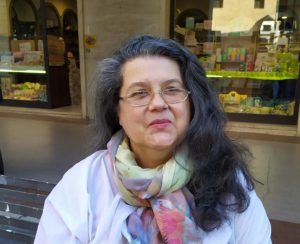
MARIA CRISTINA BUOSO
She wrote her first works when she was very young, starting with fairy tales and poems as she grew up expanding her writing with short stories, scripts, novels, detective stories, thrillers and more.
The poem “Help me” was included in the multimedia anthology “A poem for Telethon “, for charity (2004). The poem “Peace in War” in the competition organized by ALIAS (Melbourne – Australia), received the Honorable Mention. The poem “Bugie” (Stones of Angles ) was included in Vol. 6 – In Our Own Words : A Generation Defining Itself – Edited by Marlow Perse Weaver USA (2005). She won the third prize in the Joutes Literary Competition Alpines “of the Association rencontres Italie Annecy (France) for the Section Prose (Italy) with the story “The old album” (1997).
These are just some of the various awards she has received in the past and some of her works have been included in anthologies.
Recently (September 2022) she was awarded by Fiori d’Asia Publishing House of the Certificate of Collaborator of the China Writers Association and the Chinese Literature Readers Club, for her commitment in promoting Chinese culture trough her blog
https://mariacristinabuoso.blogspot.com/ , together with Fiori Picco, with whom she has been collaborating for some years.
Since January 2023 she has been one of the authors who write on Alessandria today Magazine – Pier Carlo Lava.
https://alessandria.today/
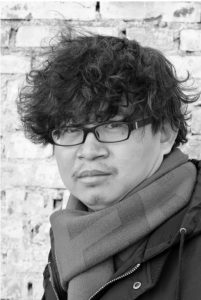
Biography of Cao Shui
Cao Shui(Chinese: 曹谁;pinyin: Cáo Shuí), also Shawn Cao (born in Jun 5, 1982), is a Chinese poet, novelist, screenwriter and translator. He is a representative figure of Chinese Contemporary Literature. He leads “the Greatpoeticism” movement. In his “Manifesto of Greatpoem”, he aims to integrate sacred and secular cultures, oriental and occidental cultures, ancient and modern cultures in Chinese literature. In 2008, he resigned from a newspaper and traveled around Tibet and Xinjiang, which is the center of Eurasia or the World in his view. His novels Secret of Heaven trilogy tells the whole developing history of human civilization. His most notable works includes Epic of Eurasia, the already mentioned trilogy and King Peacock (TV series). In his works, he extracts elements of various ancient human civilizations, from Babylon to the west to Judea, Egypt, Greece, to the east to Persia, India, China, and uses these elements to reconstruct a new Utopian human homeland, which always described as Eurasia, the Top of the Tower of Babel or Kunlun Mountains (Heaven Mountains). So far fourty books of Cao Shui have been published, including ten poem collections, four essay collections, ten novels, twenty fairy tales, four translations and one hundred episodes TV series and films. He has won more than 50 literary awards worldwide, including the 1st Chinese Young Poet Award, the 4th Cao Yu Cup Drama Award, the Apollo Dionysus Award of the 8th Italian Rome International Academy of Contemporary Poetry and Art Award, the 12th Russian Golden Knight Award, and the Top Ten Public Figures of the 5th Chinese Poetry Spring Festival Gala, etc.His works have been translated into English, Italian, Spanish, French, German, Swedish, Portuguese, Danish, Polish, Russian, Hungarian, Croatian, Slovenian, Turkish, Arabic, Japanese, Korean, Hindi, Nepali, Vietnamese, Tibetan, Mongolian, etc. He has been invited to participate in the 30th Medellin International Poetry Festival, the 26th Havana International Poetry Festival, the 14th Kritya International Poetry Festival in India and the 4th Qinghai Lake International Poetry Festival. He is a member of China Writers Association, China Film Association and China Poetry Society. He is also chief editor of Great Poetry, deputy editor in chief of World Poetry, secretary general of Boao International Poetry Festival and vice president of the Silk Road International Poetry Festival. Currently he lives in Beijing, and works as a professional writer and screenwriter.

![]()
新西兰 澳纽网出品
编辑:小图

广告 | Advertisement
在澳纽网做广告 | Advertise with us
957 views


